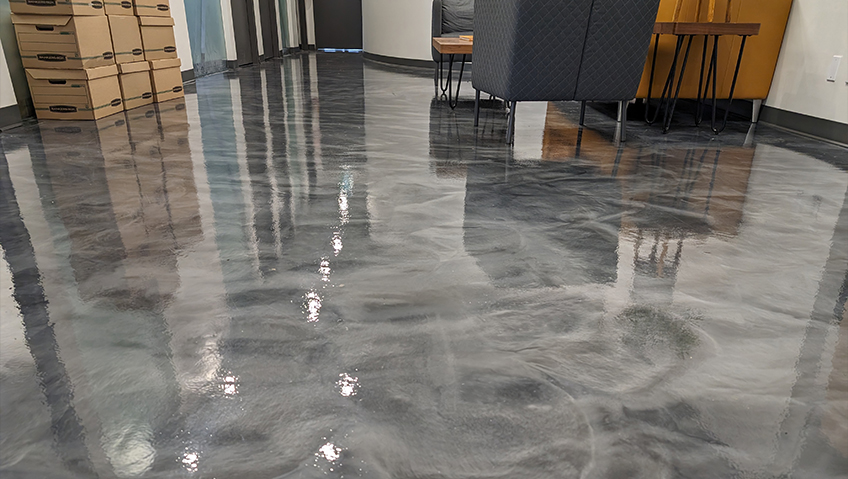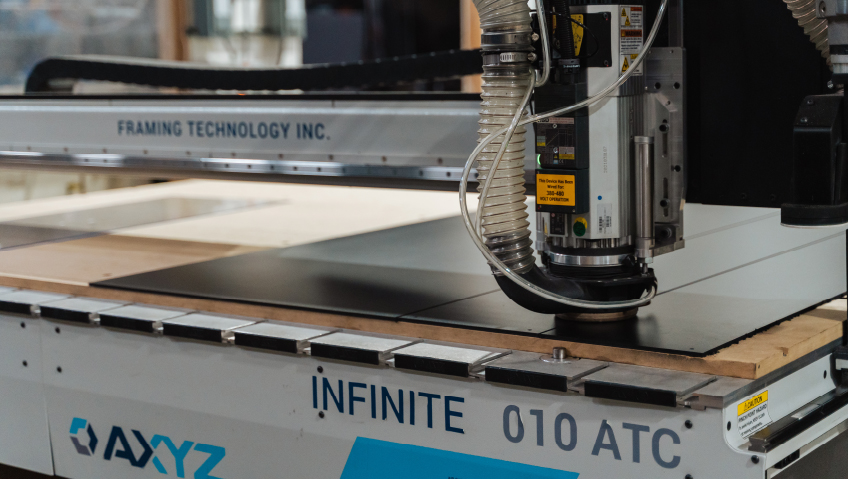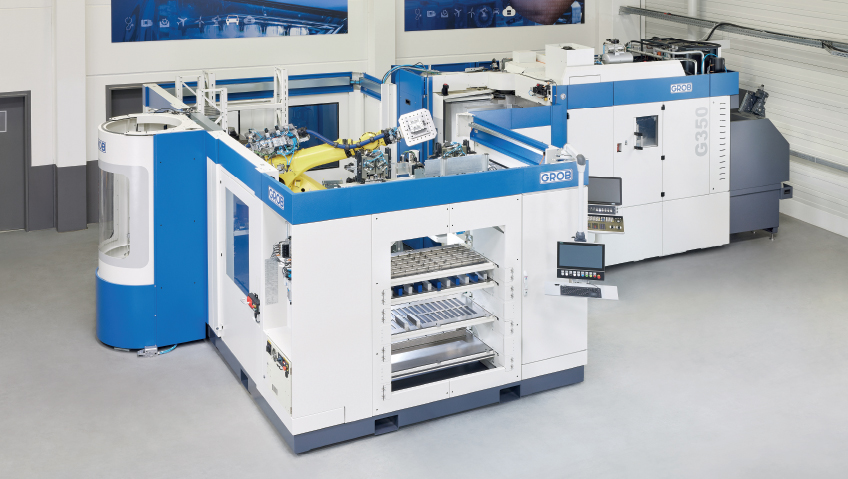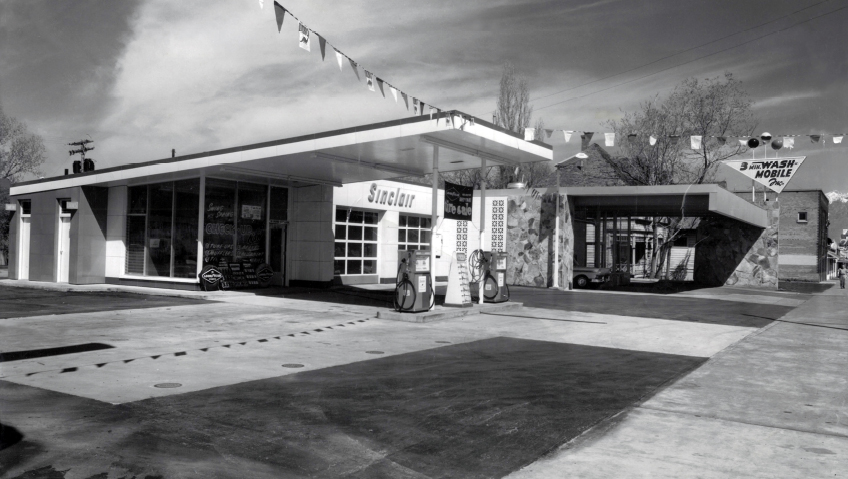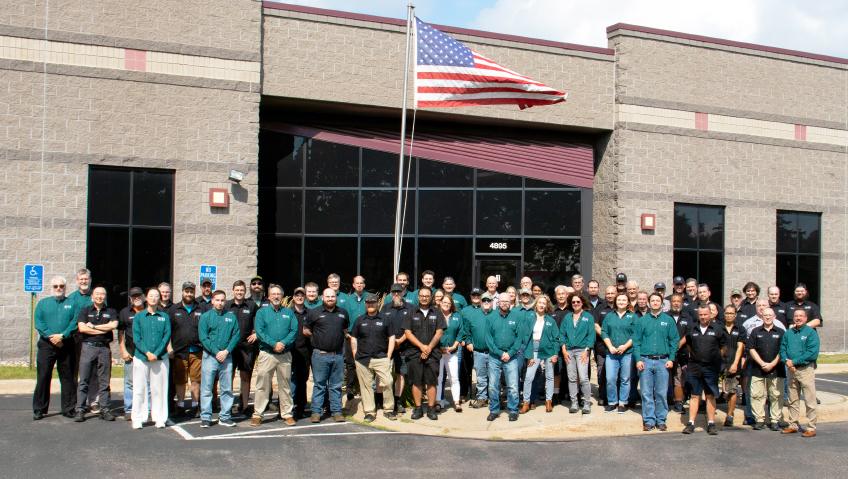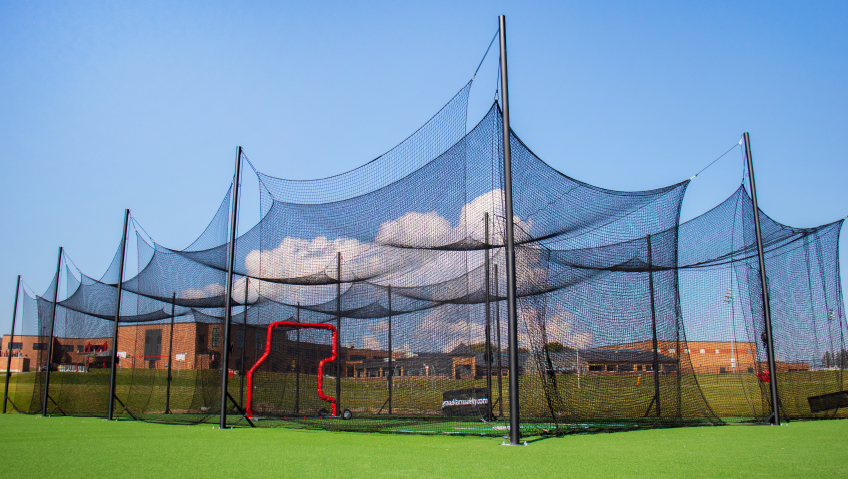Since 2016, Jupiter Protective Flooring has emerged as the go-to source for high-performance epoxy, urethane, and polished concrete flooring treatments, serving manufacturing, commercial, and residential clients in the Greater Toronto Area.
Jupiter Protective Flooring’s owner and President Scott Gaylor had been working for eight years for another company in the flooring industry, but when its management moved in a different direction, he was faced with the choice of going with them, looking for work at another company, or starting his own.
“I talked to a couple of the installers I had worked with and asked them if they’d like to jump on my team,” he shares. “They were optimistic we could make it work and here we are eight years later, averaging between 25 to 35 percent growth every year.”
We asked Gaylor to what factors he attributes Jupiter’s success, and he cites his dedicated team, the high-end, CFIA-approved coatings and mortars the company installs for customers, and his own work ethic. “I can’t over-emphasize hard work,” he says, noting he’d worked all his life—first delivering newspapers at age 10 and later studying business technology at Durham College while working full-time at GM in Oshawa, all before getting into the flooring industry.
“When I started this business,” he says, “I knew everything was on the line and I needed to have my finger on the pulse. I trusted the people I was working with, but I had to be available to do all the little things I needed to do to make sure we succeeded.”
Today, Jupiter Protective Flooring enjoys an enviable reputation for finishing its projects on time and within budget, and for ensuring that every step of the installation, whether it’s new construction or repair to an existing floor, is done professionally.
“The manufacturing industry accounts for about 85 percent of our accounts, and it’s a market that my team and I feel comfortable in and where we focus our attention, although we do a little bit of residential and commercial work. But nine times out of ten, when we get a call, it’s because a manufacturing facility has a problem and we need to isolate it and provide the solution,” he explains.
With close to two decades of experience in the industry, Gaylor shares with us the capabilities and benefits of the different types of protective flooring, epoxy, and urethane, and how they can be customized to suit specific needs.
“For example, a logistics company might be storing a lot of equipment and finding it covered with dust just as they are getting ready to ship it, so we could come in and install an epoxy floor, which is going to mitigate the dust coming up from the concrete substrate.”
Among the many benefits of the seamless floor coatings—which make cleaning easy—is the ability of the coatings to withstand the harsh chemicals and acids used in food processing plants. Epoxy coating is a popular sealant for many work environments and by its nature is resistant to chemical spills. It can be tinted almost any colour to create traffic aisles, safety lines, and no-walk areas and with the introduction of silica, results in a safe, non-slip work environment. Epoxy also lends itself to a mortar system, with the mortar troweled to a thickness of 1/8 to 1/4 inch that can exceed 10,000 PSI, which is then sealed with an epoxy coating. It’s useful, Gaylor says, in areas such as loading docks and logistics warehouses.
Jupiter can also install and guarantee Electro-Static-Dissipative (ESD) epoxy floors that work in conjunction with ESD footwear and are required to eliminate static electricity in the microelectronics industry.
Another area where epoxy—or rather, vinyl ester, a highly chemical-resistant form of epoxy—is beneficial is in waste management facilities. It stands up to aggressive chemical attack and to the chemicals needed to break down the waste so that it won’t leach through the tanks and into the ground and instead will be contained and properly dealt with.
Meanwhile, the company’s Residential Epoxy Flooring division offers a range of styles, from sleek, modern designs to classic elegance, with a variety of colours and a choice of high-gloss or matte finish. It’s suitable for kitchens, bathrooms, living areas, and garages alike.
In addition to residential epoxy coatings, Jupiter also offers epoxy-layered floorboards with the wood grain finishes some homeowners prefer for living rooms and bedrooms. “Carpet cleaning costs are very high,” Gaylor says, “but an epoxy floor only needs a mop to look brand new again.”
Another option is urethane, which, although primarily used in food and beverage environments, can be used in any facility. It has a chemical resistance superior to epoxy and is specifically designed to withstand the higher temperatures from industrial ovens and thermal cycling—the hot and cold washdowns associated with food and beverage plants.
Just how important is having superior flooring in a food processing plant? Gaylor points to a nationwide outbreak of listeriosis some years ago, resulting in 23 deaths, that was traced to bacteria mixing with concrete dust from the floor of a meat processing plant. “If something gets into concrete, which by its nature is porous, then the dust can spread and transfer the bacteria to food or the people working there. That incident really put industrial epoxy and urethane flooring on the map as a crucial part of a manufacturing facility,” he explains.
“With a proper seamless floor coating, it’s not possible for that to happen, because the bacteria can be washed away. All the substrates in a food or beverage processing plant must be protected to meet food safety standards and epoxy and urethane do that,” Gaylor says.
Whether an existing slab or a newly poured floor, Jupiter Protective Flooring can grind and polish the surface. It’s an economical way to finish a floor; it’s durable and attractive and is trending in restaurants and bars as well as in condos and art galleries, giving those spaces a sophisticated, urban vibe. At a practical level, the ground and polished surface eliminates concrete dust and is easier to clean than untreated concrete.
In terms of installation, “The actual length of time depends on the material and the square footage,” Gaylor says, “but we do a lot of weekend work with industry. Facilities will close shop on Friday and want to be open Monday morning, so we start a lot of projects on a Friday afternoon, put in long hours on Saturday and Sunday, and do the final coat curing on Sunday night. That means they can be back in business as usual on Monday,” he says.
“We have three crews working with us, each led by a professional installer, and they can bring in as many workers as they need to get the job done on time. It could be three or four, it could be up to ten. It all depends on how big the job is and how tight the timeline.”
We asked Gaylor about the company’s role in the broader community and he told us that his company sponsors sports teams for kids—specifically hockey and soccer—to alleviate some of the costs for parents, because he believes in creating a healthy community.
“I was raised playing sports and I credit a lot of who I am as a person to working in a team environment, so I would like to give back that way. You grow as a human being by playing sports. It doesn’t matter what the level is; once you play in a team environment, you realize you have a job to do, you work hard, and everyone does what they are supposed to do, and the team is successful. When that happens in real life, we build a functional and successful society,” he says.
“I’m excited about where we’re going. We are experiencing some nice growth and looking at hiring a couple of salespeople to further penetrate the GTA market, which is growing. I would love to see offshore manufacturing return and more manufacturing starting up, because we have a skilled labour force and intelligent people living here in Canada, along with the technology, so I would like to see more capital invested in manufacturing. We have the opportunity to be a world leader in manufacturing, but we need the political will to do it, and people need to realize Canada is open for business.”

